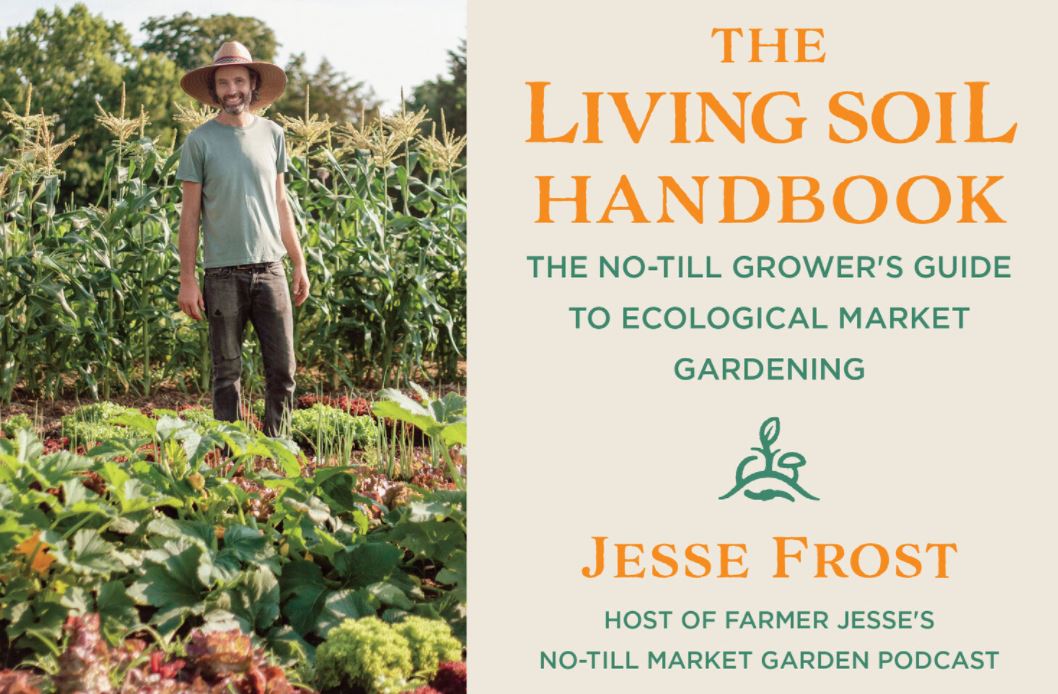REGEN AG PODCAST EP 67: JESSE FROST AND MARKET GARDENS

Jesse runs his own podcast, and while I don’t know anything about his face, he’s definitely got a voice for radio. A pleasant listen, if not a long one. He’s also got a book coming out: “The Living Soil Handbook: The No-Till Grower’s Guide to Ecological Market Gardening”, and has a website notillgrowers.com
This was my take home quote*: “not having to deal with weeds is life changing”. The number of labour units/ ha in a market garden he said was required prior to this discovery was much higher than anything seen in conventional ag, but might be similar to what the organic sugar beet guys are paying for. The life change was that he got a life back – instead of pulling weeds, he could play with his kid, go to town, meet friends, etc. There was lot of chat about how a good farm provides more than just money – also time to live a full life. The not dealing with weeds came mainly from compost and cover-crops, if I remember correctly.
* there’s a good chance I got the exact wording wrong.
Jesse’s podcast grew from what he saw as a lack of info on how to do regen and how to do it in market gardens, and at a small scale. So, he and John managed to talk a lot about the practicalities of things, which is always a good listen. A lot of this chat was about compost, and given I can’t see a big demand for compost in sugar beet production in my lifetime (it would be great if I’m wrong), I tuned out a bit here.
When talking about regen veggies, Jesse was pretty clear that there is more than one way to do this. Permanent beds, compost based system, or very light surface tillage were the three general systems he presented. All these systems have issues with nutrient management that need careful consideration.
Before talking technical systems, there was good bit of chat on the farm business management side of things. Leasing and starting small, but also finding a valuable niche, all came up. Start where you can, financially, scale, geographically.
Three other things that struck me:
- Science needs to talk with/ understand farmers, and farmers need to talk with/ understand scientists.
- tillage = excessive disturbance. So no till = no excessive disturbance. The cut off is still pretty low.
- Great biology with trump bad chemistry. That is, good soil biology with provide the system with the things is need in spite of the chemistry (mainly fert) used.
- Inter-cropping is a great way to step back into the complexity (see and get used to) of food producing systems. Symbiotic relationships were discussed at length.
That’s four…